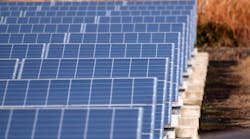The drive towards sustainability has never been more urgent – and technology will continue to play a crucial role. The Lloyd’s Register Technology Radar – Low Carbon, examines the outlook for renewables, nuclear, grid and infrastructure, and energy storage.
The research sought the insights and opinions of leaders across the sector, as well as the views of almost 600 professionals and experts around the world – from utilities and distributors through to operators and equipment manufacturers.
Respondents were asked to rate a number of technologies in terms of their potential impact, the amount of time it would take for these technologies to hit the market, and how likely they are to be adopted once they do. Respondents were also asked on reflect on the pace and success of innovation in their sector - and what they see as the major drivers and blockers.
Key findings include:
- Low carbon generation technologies are cost competitive. 70% of renewables respondents say that renewables are now reaching cost parity with fossil fuels.
- Solar cell technology is likely to have a major impact, and soon. Renewables respondents are most optimistic about the potential of advances in solar cell technology - and the likelihood of adoption.
- Software advances will be instrumental in transmission and distribution. They are seen by respondents as the innovation that will be the quickest to arrive and the most likely to be adopted. Blockchain could reshape the way we think about the transmission and distribution of power by enabling a new era of peer-to-peer low carbon generation.
- It is electrical technologies that will transform storage, rather than mechanical storage or chemical technology innovations. In particular, respondents expect supercapacitors, which will rapidly speed up charging times for large batteries, to have the greatest impact on storage.
- Deployment is a major barrier. Implementation of technology in renewables is hindered by deployment, which faces its own distinct challenge. However, 71% of respondents agreed there had been an increase in the scale of deployment of renewable energy sources.
- Standardization as a much-needed development for the low carbon sector. Industry experts agree that regional and global consensus on regulations could speed up deployment and further reduce costs.
“We are very encouraged by the findings, which highlight not only a growing optimism across the industry but a vigorous and intelligent debate about the pathways to decarbonization,” says Alasdair Buchanan, Energy Director of Lloyd’s Register, a leading provider of integrity, compliance and specialist risk consulting services.
“Clearly, there are many uncertainties about exactly how the industry will evolve, but what is inarguable is that the conversation is no longer about “should we?” but “how should we do it?””
This is the third year Lloyd’s Register has conducted its Technology Radar research. Whilst earlier editions have focused on the oil and gas sector, this time around, the research concentrates on the low carbon sector, with particular attention to renewable energy, energy storage and infrastructure. The timing of this report will help to inform government debate and energy policy across the world.
Go to info.lr.org/techradarlowcarbon to download the Technology Radar – Low Carbon, and Technology Radar – A Nuclear Perspective.

